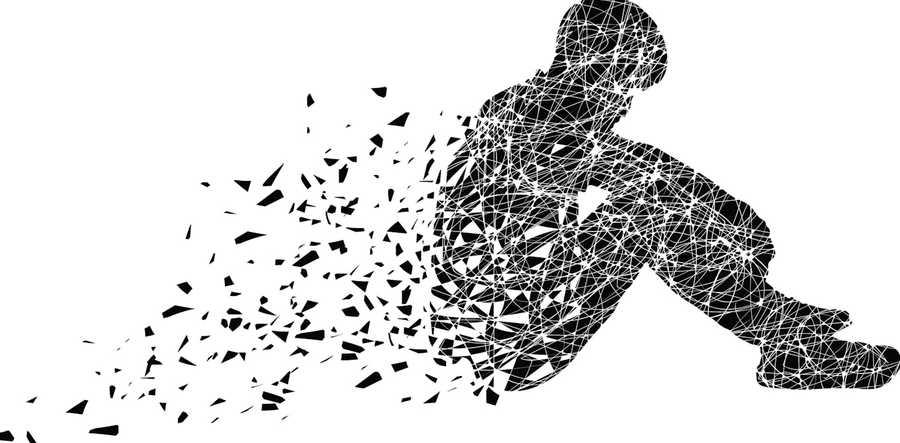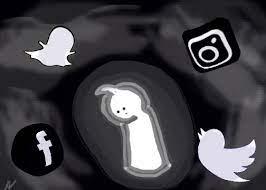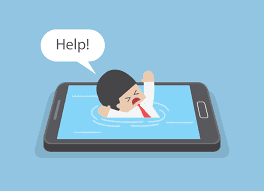Explore the World's Best Ideas
Join today and uncover 100+ curated journeys from 50+ topics. Unlock access to our mobile app with extensive features.
Does social media play a role in depression?
By some estimates, roughly 4 billion people across the world use networking websites as Facebook, Twitter and Instagram, prompting mental health experts to investigate if enormous popularity of social media plays a role in depression.
Research suggests that people who limit their time on social media tend to be happier than those who don’t. Studies also indicate that social media may trigger an array of negative emotions in users that contribute to or worsen their depression symptoms.
74
566 reads
Defining depression
Clinical depression or major depressive disorder is a mood disorder characterized by ongoing feelings of sadness and los of interest in activities that an individual once enjoyed.
Depression can be mild of severe and make it difficult for those with the condition to concentrate, sleep or eat well, make desicions, or complete their normal routines.
People with depression may contemplate death or suicide, feel worthless, develop anxiety or have physical symptoms such as fatigue or headaches.
62
445 reads
Bad news
For heavy social media users, people wo log in for multiple hours at a time or multiple times a day, this means exposure to nonstop news, including bad news. Headlines related to natural disasters, terrorist attacks, political strife, celebrity deaths, and the COVID-19 pandemic is on the top of the list.
Before the advent of social media and the internet generally, one’s exposure to bad news was limited. The public got news from broadcasts that aired at certain times of the day or from newspapers.
Nowadays people are informed with news around the clock or feel like they are missing out on something.
69
384 reads
"Doomscrolling"
The habit of binging bad news on social media sites or else where online is known as "doomscrolling" and it can adversely affect one's mental health, leading anxiety or depression symptoms to develop or heighten.
A clinical psychologist calles it “vicious cycle of negativity.” The cycle continues because “our minds are wired to look out for threats,” she said. “The more time we spend scrolling, the more we find those dangers, the more we get sucked into them, the more anxious we get.”
69
385 reads
Why young people are at risk
Prior to social media and the internet, children only had to worry about bullying on school grounds, for the most part. But social media has given bullies a new way to torment their victims.
With just one click, bullies can circulate a video of their target being ridiculed, beaten up, or otherwise humiliated. Cliques of mean girls and boys can swarm a peer’s social media page, leaving negative comments or spreading misinformation. In some cases, bullies have convinced their victims to kill themselves.
66
322 reads
The facts on social media and depression
- Social media has never been more popular, with more than half of the world population active on these networking sites that roll out nonstop news, much negative
- The lancet study found that people who check facebook late at night were more likely to feel depressed an unhappy.
- A 2018 University of Pennsylvania study found that the less time people spend on social media, the less symptoms of depression and loneliness they felt.
- Who felt envy while on the networking site were more likely to develop symptoms of depression. A 2015 study found that Facebook users.
Limiting your time on social media and prioritizing one's real-world connections can be benificial to mental health.
68
248 reads
Safely using social media
Using social media comes with mental health risks, but that doesn't mean it should be completely avoided. Experts recommend using these networking websites in moderation.
- Set a timer for using social media or install an app that tracks how long you’ve spent on a networking site.
- Real world activities that help you focus on your immediate surroundings and circumstances.
- Read a book
- watch a movie
- go for a stoll
- play a game
- bake some bread
it's so easy to get lost for hours on social media, make the time to enjoy life.
69
265 reads
Causation or Correlation?
Some studies about social media and mental health reveal that there's a correlation between networking websites and depression. Other research goes a step further, finding that social media may very well cause depression.
A landmark study — “No More FOMO: Limiting Social Media Decreases Loneliness and Depression” — was published in the Journal of Social and Clinical Psychology in 2018.
The study found that the less people used social media, the less depressed and lonely they felt.
if ur interested in the studies check the article itself.
62
291 reads
IDEAS CURATED BY
I'm passionate about helping people live their best lives. I'm a lifestyle coach & burnout coach.
Rogier. H's ideas are part of this journey:
Learn more about psychology with this collection
How to overcome unwanted thoughts
How to manage intrusive thoughts
How to change your attitude towards intrusive thoughts
Related collections
Similar ideas
7 ideas
Social Media and Mental Health - HelpGuide.org
helpguide.org
13 ideas
How Social Media Impacts Your Mental Health
verywellmind.com
8 ideas
The Impact of Social Media on Body Image, Eating, and Health
psychologytoday.com
Read & Learn
20x Faster
without
deepstash
with
deepstash
with
deepstash
Personalized microlearning
—
100+ Learning Journeys
—
Access to 200,000+ ideas
—
Access to the mobile app
—
Unlimited idea saving
—
—
Unlimited history
—
—
Unlimited listening to ideas
—
—
Downloading & offline access
—
—
Supercharge your mind with one idea per day
Enter your email and spend 1 minute every day to learn something new.
I agree to receive email updates






